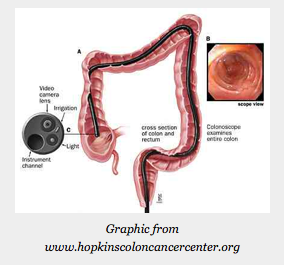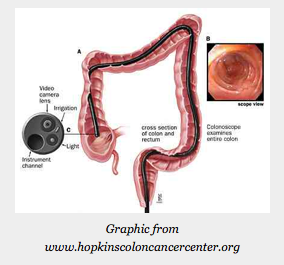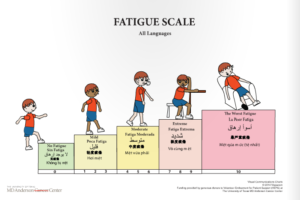
As the date of my screening colonoscopy is coming up soon, an article in the March 5, 2013 issue of the Annals of Internal Medicine caught my eye. It was titled, “Screening Colonoscopy and Risk for Incident Late-Stage Colorectal Cancer Diagnosis in Average-Risk Adults.” The rationale for doing the study was highlighted in the summary:

As the date of my screening colonoscopy is coming up soon, an article in the March 5, 2013 issue of the Annals of Internal Medicine caught my eye. It was titled, “Screening Colonoscopy and Risk for Incident Late-Stage Colorectal Cancer Diagnosis in Average-Risk Adults.” The rationale for doing the study was highlighted in the summary:
“The effectiveness of screening colonoscopy in average-risk adults is uncertain, particularly for right colon cancer.”
Really? I thought we settled that long ago. It turns out that the published evidence has established the effectiveness of sigmoidoscopy and fecal occult blood tests in reducing risk for colorectal cancer incidence and death, but solid evidence for the effectiveness of the much more expensive and invasive screening colonoscopy “is limited” when is comes to people who are average-risk for the disease. This led a team of researchers led by Clyde A. Doubeni, MD, MPH at the University of Pennsylvania Perelman School of Medicine to design and carry out a case-control study of more than 1000 average risk adults.
The study design is interesting. The researchers collaborated with HMOs participating in the HMO Cancer Research Network (Kaiser Permanente, Group Health and Reliant Medical Group/Fallon) in part because they all had electronic utilization data on their patients dating back to 1995. They identified cases of late stage CRC (IIB or higher), but excluded those who were considered high risk because of a history of total colectomy, inflammatory bowel disease or strong family history or familial CRC syndromes. These “average-risk” patients were then matched to control patients, using incidence density matching. Controls at high risk for CRC were also excluded. 471 case patients were included in the study. 53% had right colon cancer, 43% had left-sided CRC, and 3% had colorectal cancer of unspecified location. There were 509 controls.
The researchers then looked through the electronic health data to determine which patients had had screening colonoscopy or sigmoidoscopy in the 10 year period before what the call the “reference date” which was the date of diagnosis of each of the advanced cancer patients. They developed an algorithm and a process to determine if the colonoscopy or sigmoidoscopy was surveillance, diagnostic, or for screening purposes. Remember, this study wanted to determine the effectiveness of screening colonoscopies.
Here is what they found. Only 3% of colon cancer case patients had undergone screening colonoscopy compared to 9% of the control patients, for an odds ratio of .32 (95% CI, 0.16 to .61). 19% of case patients and 34% of controls had had a screening sigmoidoscopy.
The researchers sliced and diced the data to determine whether the presumed quality of the colonoscopy (good prep or gastroenterologist-performed) made a difference – and it did not.
Their conclusion was that screening colonoscopy in averagerisk indivudals is associated twith a large reduction in new-onset, late stage colorectal cancer in both the right and the left colon. This is very good to know before I undergo my own screening colonoscopy.
They also conclude that screening sigmoidoscopy reduced risk for left-sided colorectal cancer, but had a statistically nonsignificant effect on risk for right-sided, late state colon cancer.
There are of course limitations to the study (small numbers of people who were screened, lack of clarity about whether the test was truly for screening or to evaluate symptoms), but overall, it does seem that this study supports the use of screening colonoscopy to reduce late-stage CRC diagnoses. This is a big “whew” as I get ready for my own bout with the prep and the scope.








